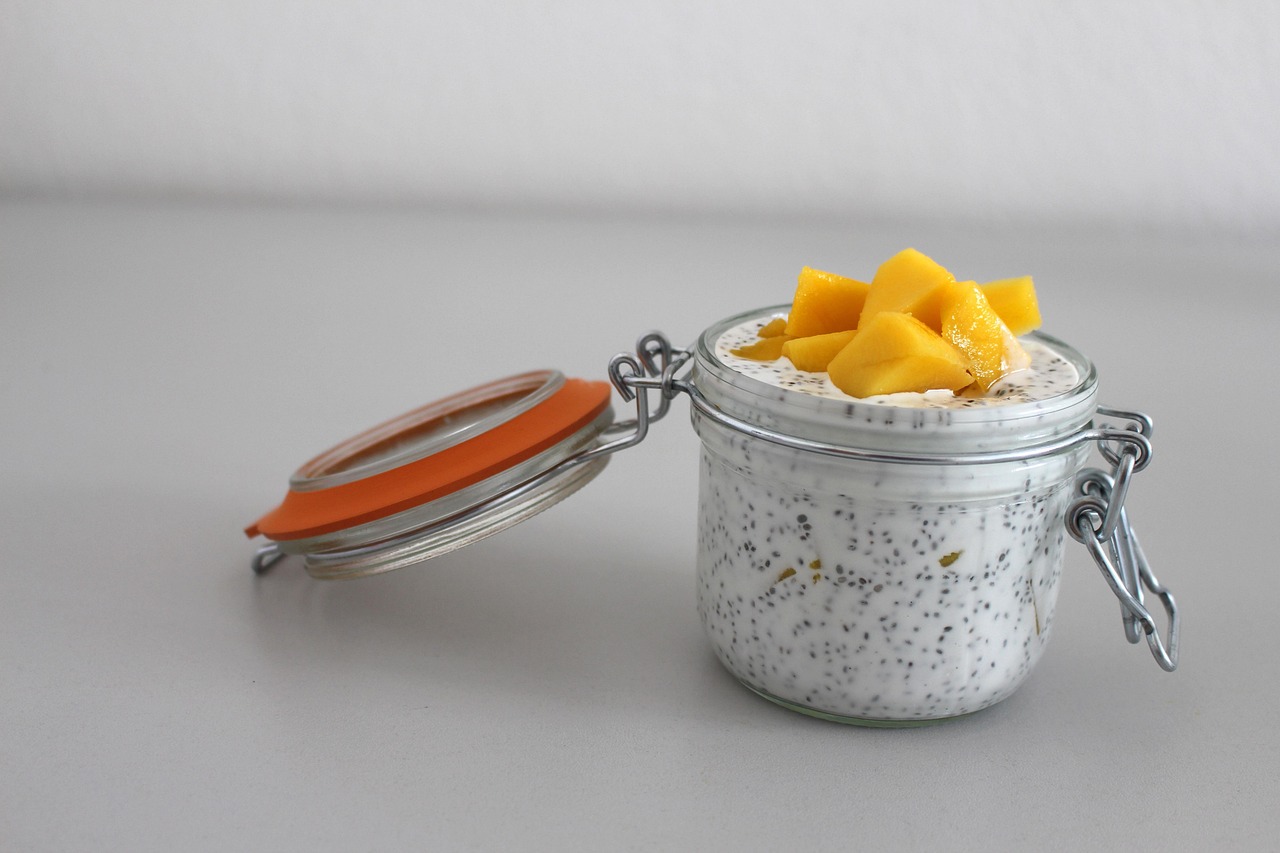Did you know that the foods you eat can dramatically influence your brain health? It’s true! While many people focus on macronutrients like proteins and carbohydrates, the role of fatty acids often gets overlooked. These essential fats can be crucial for cognitive function, mood regulation, and overall brain health. In this article, we’ll dive into five fatty acids that can supercharge your brain power.
Contents
1. Omega-3 Fatty Acids
What They Are
Omega-3 fatty acids are a type of polyunsaturated fat, and they’re often lauded for their health benefits. The three main types are ALA (alpha-linolenic acid), EPA (eicosapentaenoic acid), and DHA (docosahexaenoic acid). While ALA is mainly found in plant sources like flaxseeds and walnuts, EPA and DHA are predominantly found in fish and algae.
Brain Benefits
Research has shown that omega-3s, particularly DHA, are vital for brain development and function. They help build cell membranes in the brain and eyes, contributing to improved cognitive function and memory. A study published in Frontiers in Aging Neuroscience (2017) found that higher levels of DHA were associated with better cognitive performance in older adults (Bannai et al., 2017).
Pros and Cons
Pros:
- Supports memory and cognitive function
- May reduce the risk of Alzheimer’s disease
- Can improve mood and decrease anxiety
Cons:
- Can be hard to get enough from diet alone, especially for vegetarians or vegans
- Quality of supplements can vary; some may contain contaminants
Food Sources
- Fatty fish (like salmon, mackerel, and sardines)
- Flaxseeds and chia seeds
- Walnuts
- Algal oil supplements
2. Omega-6 Fatty Acids
What They Are
Omega-6 fatty acids are also polyunsaturated fats, primarily found in vegetable oils, nuts, and seeds. Linoleic acid (LA) is the most common omega-6 fatty acid in the diet.
Brain Benefits
While omega-6s often get a bad rap for promoting inflammation, they play a crucial role in brain health as well. They help regulate cell membrane fluidity and are involved in signaling pathways that affect mood and cognition. However, balance is key; a healthy ratio of omega-3 to omega-6 is essential for optimal brain function.
Pros and Cons
Pros:
- Supports brain function and cell structure
- Can help with mood regulation when balanced with omega-3s
Cons:
- An excess can lead to inflammation and other health issues
- Often consumed in high amounts in processed foods
Food Sources
- Corn oil, soybean oil, and sunflower oil
- Nuts and seeds (like pumpkin seeds and walnuts)
3. Omega-9 Fatty Acids
What They Are
Omega-9 fatty acids are monounsaturated fats, with oleic acid being the most common type. Unlike omega-3 and omega-6, omega-9s are not considered essential because the body can produce them.
Brain Benefits
Omega-9s can support brain health by improving blood flow and reducing inflammation. They have been linked to improved heart health, which is indirectly beneficial for brain function, as a healthy heart means better blood flow to the brain.
Pros and Cons
Pros:
- Can help lower bad cholesterol levels
- May improve cognitive function
Cons:
- Not as robustly studied as omega-3s
- Should still be consumed in moderation
Food Sources
- Olive oil
- Avocados
- Almonds and other nuts
4. Conjugated Linoleic Acid (CLA)
What It Is
Conjugated linoleic acid is a type of omega-6 fatty acid that is found in meat and dairy products. It has gained popularity as a supplement for weight loss, but it also has potential benefits for brain health.
Brain Benefits
CLA has been shown to have antioxidant properties, which can protect brain cells from damage. Some studies suggest that it may also play a role in improving memory and cognitive function, although more research is needed in this area.
Pros and Cons
Pros:
- May help with fat loss and muscle gain
- Antioxidant properties can protect brain health
Cons:
- Limited research specifically on brain function
- Can be found in higher amounts in grass-fed animal products, which may not be accessible to everyone
Food Sources
- Grass-fed beef
- Dairy products like cheese and yogurt
5. Palmitoleic Acid
What It Is
Palmitoleic acid is a monounsaturated fatty acid that is less commonly discussed but still has some intriguing benefits. It’s naturally occurring in certain animal fats and plant oils.
Brain Benefits
Emerging research suggests that palmitoleic acid may play a role in brain health by influencing insulin sensitivity and reducing inflammation. Some studies indicate it might help protect against neurodegenerative diseases, though more research is needed.
Pros and Cons
Pros:
- Potential anti-inflammatory effects
- May support insulin sensitivity
Cons:
- Less research available compared to other fatty acids
- Limited dietary sources
Food Sources
- Macadamia nuts
- Some fish and animal fats
FAQs
1. How much omega-3 fatty acid should I consume?
The American Heart Association recommends at least two servings of fatty fish per week, which translates to about 500 mg of EPA and DHA combined per day for general heart health. For specific brain health benefits, some experts suggest higher amounts, especially for those with cognitive concerns.
2. Can I get enough omega-3s from a vegetarian diet?
Yes, you can obtain omega-3s from plant sources like flaxseeds, chia seeds, and walnuts. However, the body converts ALA from these sources into EPA and DHA at a low rate, so you might consider algae-based supplements if you’re not consuming fish.
3. Are fatty acids safe to take as supplements?
Generally, fatty acid supplements are safe for most people, but it’s essential to choose high-quality products. Always consult a healthcare provider before starting any new supplement, especially if you have underlying health conditions or take medications.
4. How do I maintain a good balance of omega-3 and omega-6 fatty acids?
To achieve a healthy balance, focus on reducing processed foods high in omega-6s and increasing your intake of omega-3-rich foods. Aim for a dietary ratio closer to 1:1 instead of the typical 15:1 in the modern diet.
Conclusion
Fatty acids play a significant role in brain health, and incorporating a variety of them into your diet can help supercharge your cognitive function. While omega-3s often steal the spotlight, don’t underestimate the benefits of omega-6s, omega-9s, CLA, and palmitoleic acid.
As you explore these fatty acids, remember that balance is key, and a diverse diet will go a long way in supporting your brain power. So, whether you’re a fish lover, a nut enthusiast, or somewhere in between, there’s a fatty acid out there that can help you think clearer and feel better.
This article is for educational purposes only and is not a substitute for professional medical advice. Always consult a qualified healthcare provider before making changes to your health routine.
References
-
Bannai, M., et al. (2017). “Association between dietary DHA and cognitive performance in older adults.” Frontiers in Aging Neuroscience. https://www.frontiersin.org/articles/10.3389/fnagi.2017.00107/full
-
Mayo Clinic. (n.d.). “Omega-3 fatty acids: An essential contribution.” https://www.mayoclinic.org/drugs-supplements/omega-3-fatty-acids/art-20397406
-
Harvard Health Publishing. (n.d.). “The benefits of omega-3 fatty acids.” https://www.health.harvard.edu/staying-healthy/the-benefits-of-omega-3-fatty-acids
Get Your FREE Natural Health Guide!
Subscribe now and receive our exclusive ebook packed with natural health tips, practical wellness advice, and easy lifestyle changes, delivered straight to your inbox.






